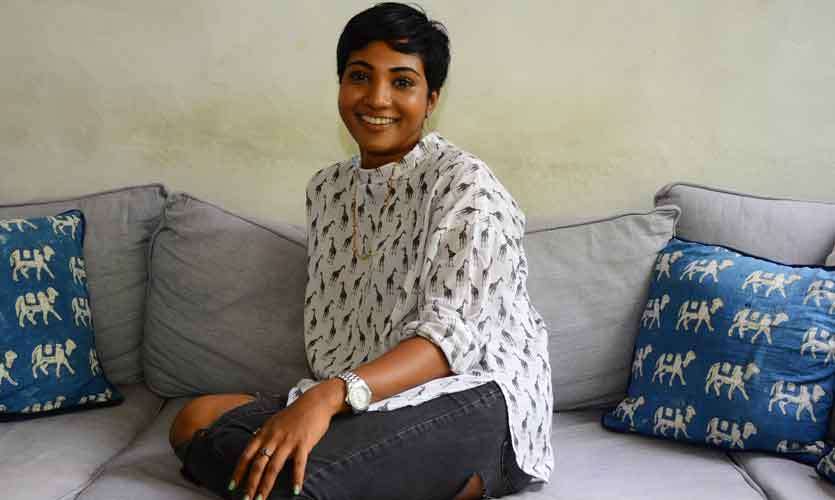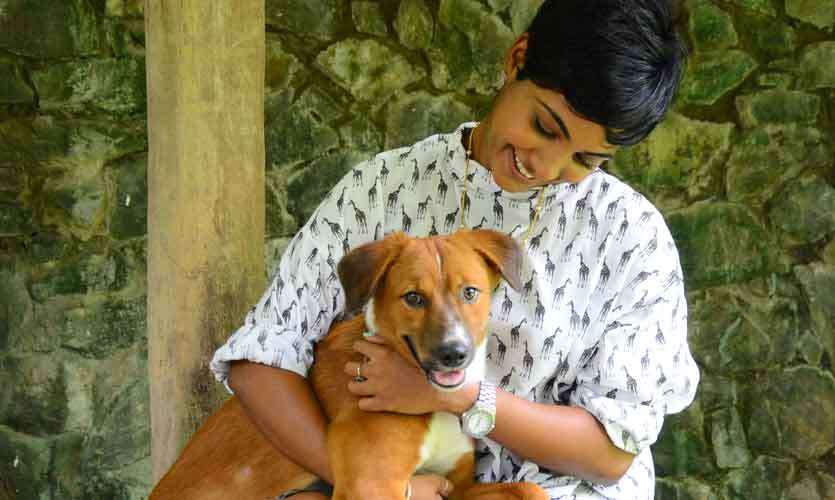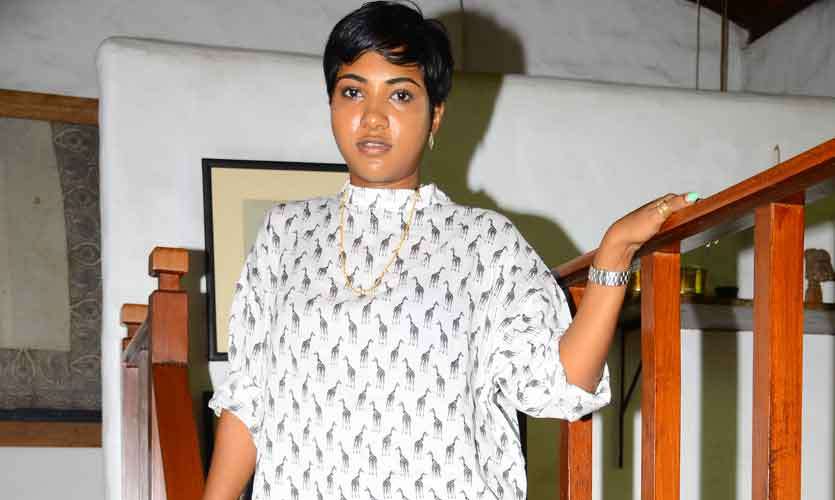
Jul 02 2019.
views 1597At a time when the use of single-use plastics is largely being frowned upon, it has become a responsibility for every citizen to opt for alternatives. It is in such a backdrop that initiatives such as Ananta Sustainables are focused in ‘making sustainability a viable option’ as their slogan goes. At Ananta, all products are 100% compostable and are made of paper, wood, bagasse and materials made from agricultural waste. With a passion to inculcate the habit of sustainability among corporates and all citizens, the three-member team at Ananta are doing things differently.
Gracing this month’s W@W cover is Savera Weerasinghe, the dynamic and bubbly Cofounder of Ananta Sustainables who shared her views about the concept, why sustainable concepts are challenging and what she loves most about her work.

Tell us about you
I’m very passionate about the environment and sustainability was a non-negotiable, especially at home. I studied at New York University and I knew that environmental studies and sustainability would be the foundation for whatever I did. Then I came across a social entrepreneurship. So I majored in environmental studies and minored in social entrepreneurship. I was in fact looking at how businesses could build it into their DNA. Apart from profit, I would argue that there’s a two-pronged model there ; profit is derived from the way you make profit and how it benefits people and the planet. So even this model needs to be revisited. This is what I appreciate about my education from home, from my mother and at NYU where I learned how to question things.
How did Ananta Sustainables come into being?
When I came back I started working with my family-owned business which was a group of companies that focused on manufacturing and trading. We were already doing paper packaging primarily for the cement industry and I found a lot of potential in it. It was when I just started working that the Meethotamulla incident happened and I was embarrassed because as a CEO of a company in the packaging industry we weren’t doing anything about it. That whole time I was trying to make the facility self-sustainable with solar power and about 72% women. The end-product was innately sustainable but it wasn’t going to a consumer who cared much about it. So from then on I realised that the consumer is actually where the hope is. The consumer is the person that is aware, the person who is asking for it and that’s where social media is reaching. Then I started Ananta, where we sort of apply solutions in terms of sustainable packaging but we still don’t have the infrastructure for some of the solutions such as recycling.
Why the name ‘Ananta’?
Anantaya means infinity in Sanskrit and the idea is that the materials will come from the ground and it will go back to the ground and we will have an infinite loop. Most things come from the ground but making sure they go back to the ground and replenishing it in a way that they will keep coming is something we are keen on.
Is it only packaging or are there other products that are available?
Currently it’s only packaging which we provide mostly to the hospitality industry and it’s a limited range. We consult on transitioning the FMCG sector but most products we supply are compostable and these include cutlery, straws etc. But we are expanding to be able to offer all the alternatives to a hotel. The larger goal is that if we could replace single-use plastics with compostable items, then it will be organic waste. So we are looking at collecting it and giving to composters and adding value to it and have a closed loop.

You’re also involved in conducting a forum titled ‘Trash Talk’. Through this do you see people’s mindsets changing?
I think there’s hope. A lot of people feel that they don’t have the power and there’s no control in this process. If they segregate garbage where will the waste go? Sometime back, we did a plogging event where people had fun segregating the waste. At the end of the day, segregation is key. Everyone is in a blame game because it’s easy for the government and corporates to litter because the citizens are also littering. So it’s a vicious cycle where everyone is blaming the other person. This is what needs to change. It’s not about changing the world, but it’s about changing OUR world.
Most sustainability initiatives are one-off projects. How could they be continued?
This is where we need to look at the materials we are using and where we are throwing them. It’s easy to go to a beach and say that it’s littered and yes, we definitely need to clean the beaches but we also need to look at the source. People’s assumptions need to change; everyone feels that they are a drop in the ocean, everyone has their own lives. But their actions and everyone else’s actions make a huge impact. So people need to be aware of individual responsibility as well. But when people realise it they think they should lead the way. No, you don’t have to lead the way, it would be nice if you could simply extend your support and be a part of the process.
How is it like to be a CEO of a startup?
As soon as I got back from New York, I was the CEO of a manufacturing company with 102 employees and I had a team to get things done. Now there’s just the three of us. It’s daunting but it’s nice to be solely responsible for everything that we do. But mostly I have met some incredible people in this sustainability space and it’s nice to meet people whose values are in line with sustainability. That’s the best part of this process.
What’s the main challenge in this entire startup/sustainability process?
For the business, it’s the pricing factor. Of course it’s going to be expensive. We need consumers to come forward and agree to pay an extra Rs. 10 to not have plastics that would last for six generations of our children. It’s cool to talk about single-use plastics and ocean plastics but what is our commitment? So we have to focus on that instead.

What’s the most satisfying part about your career?
Hope and the amazing people I get to meet. My role is to find amazing people, put them together and see what happens and that excites me the most. We have language, communication and connection so we need to share our ideas and make them happen. I also have fun while doing all this.
Any new projects coming up?
We are pulling together a coalition. People aren’t ready to collaborate and do things together. So this coalition will bring together non-profits involved in research, social enterprises and corporates and through a media campaign we are bringing in consumers and citizens who are asking for this change. Through this we can show the numbers to the corporates who are coming on board. Consulting work too is really fun because that way we can directly talk to corporates and tell them how to become more sustainable.
0 Comments